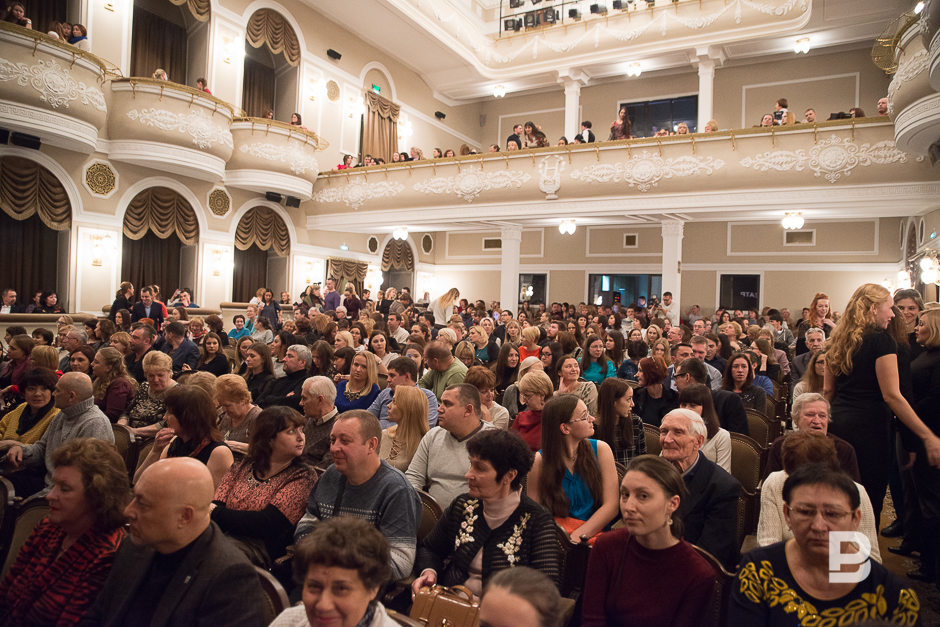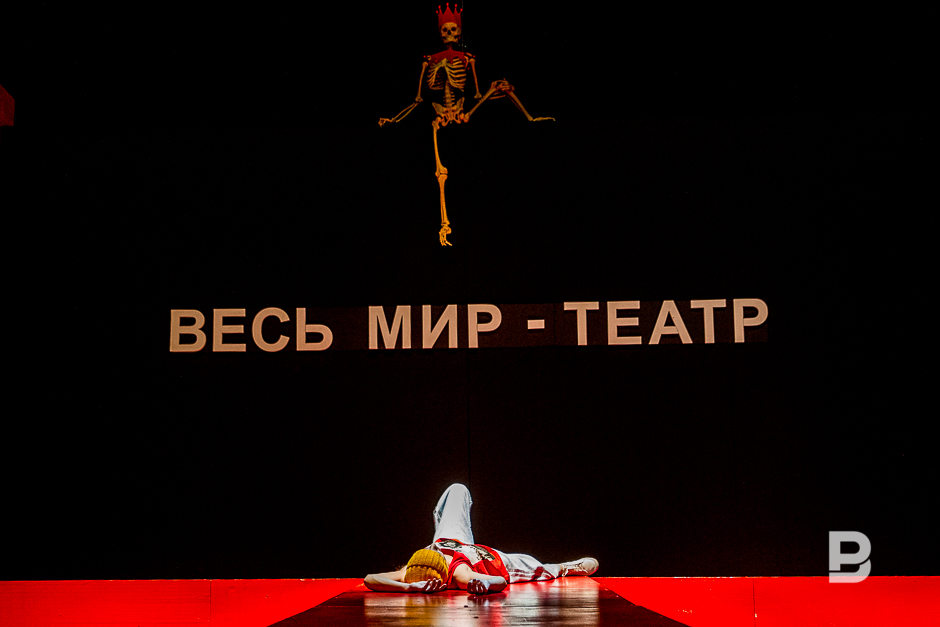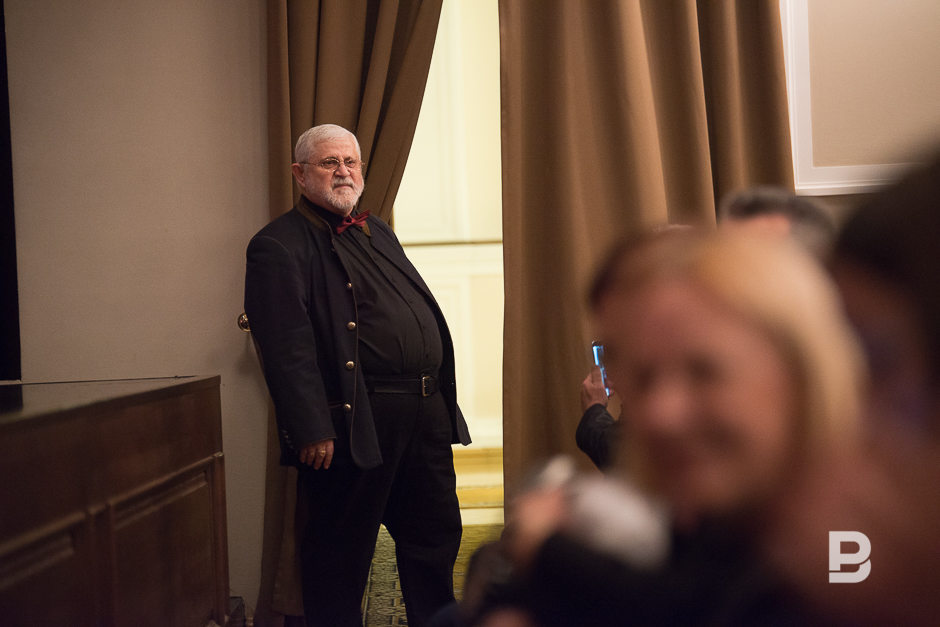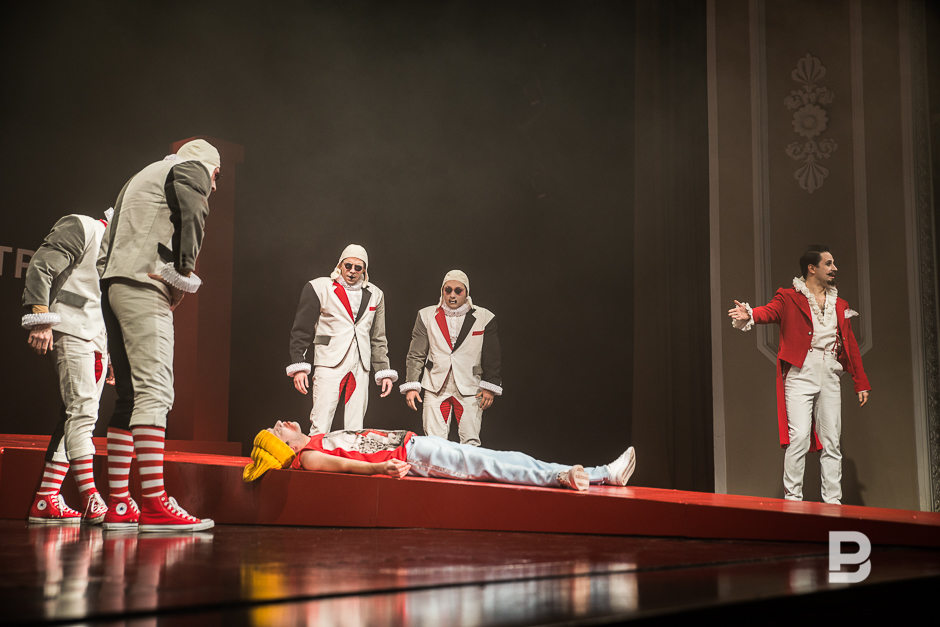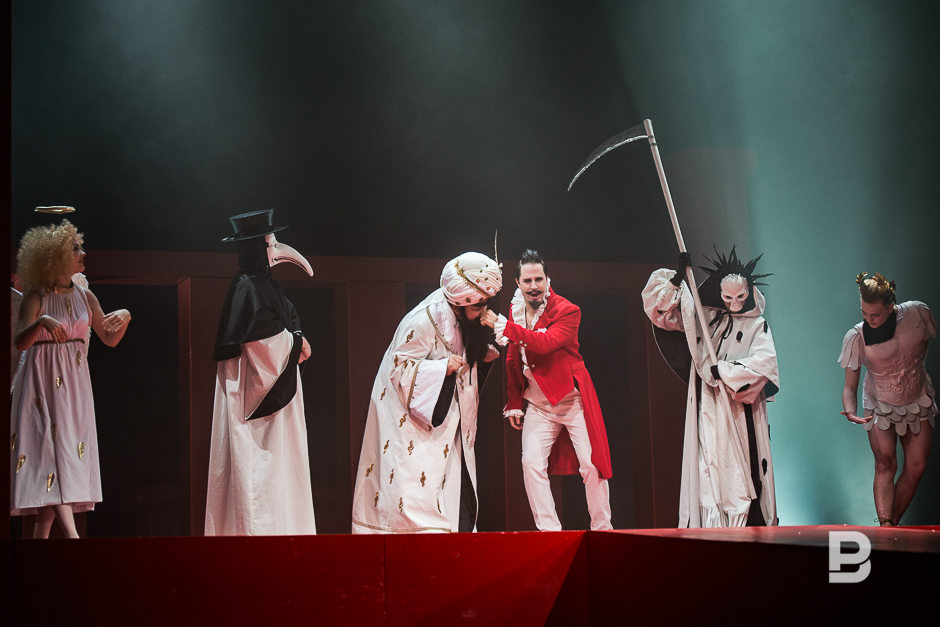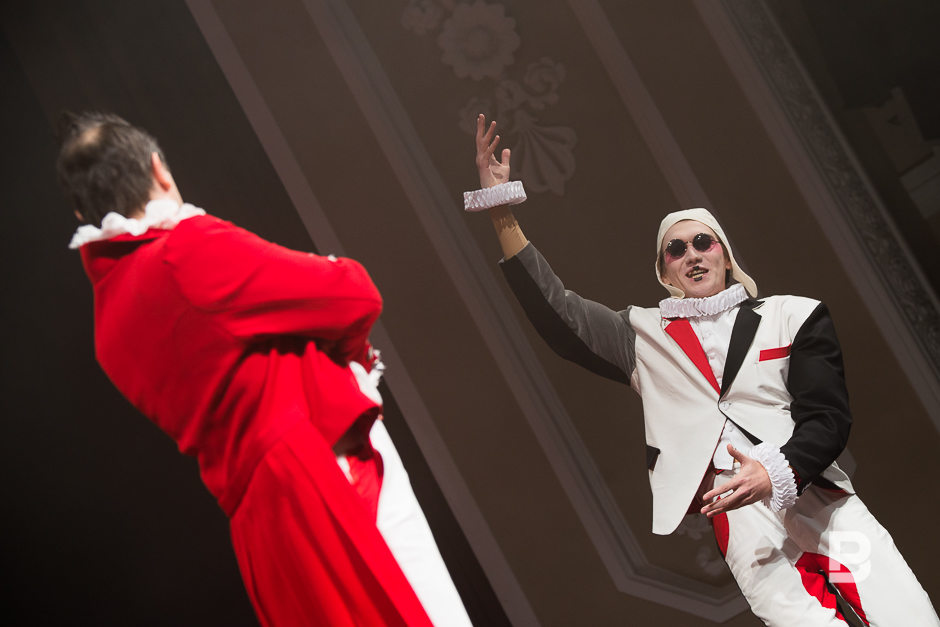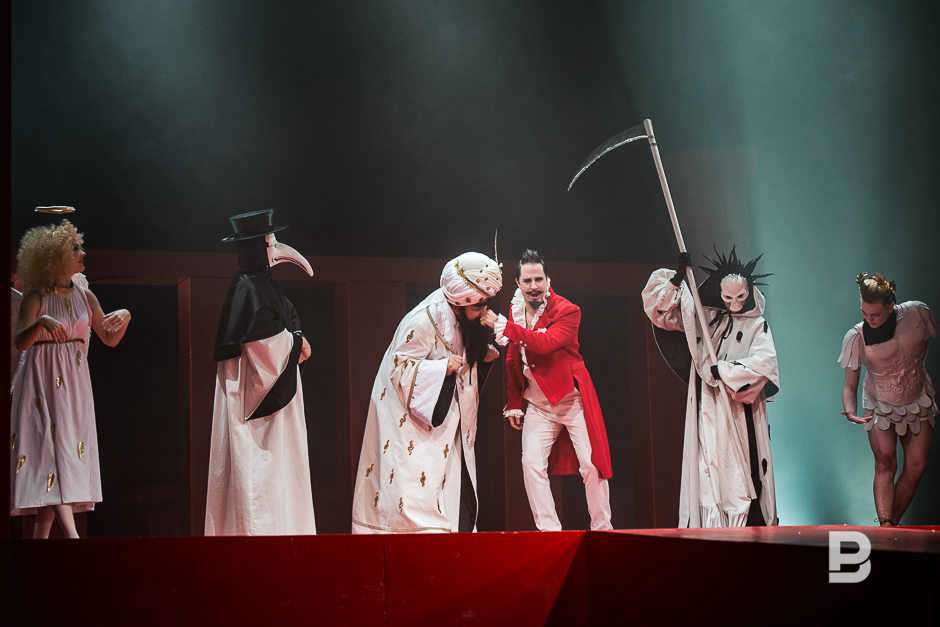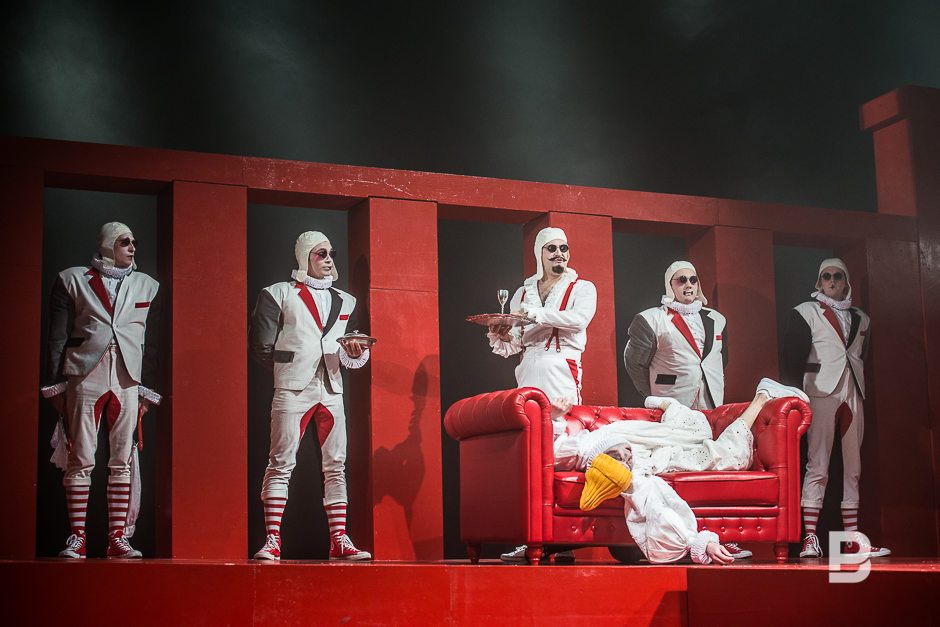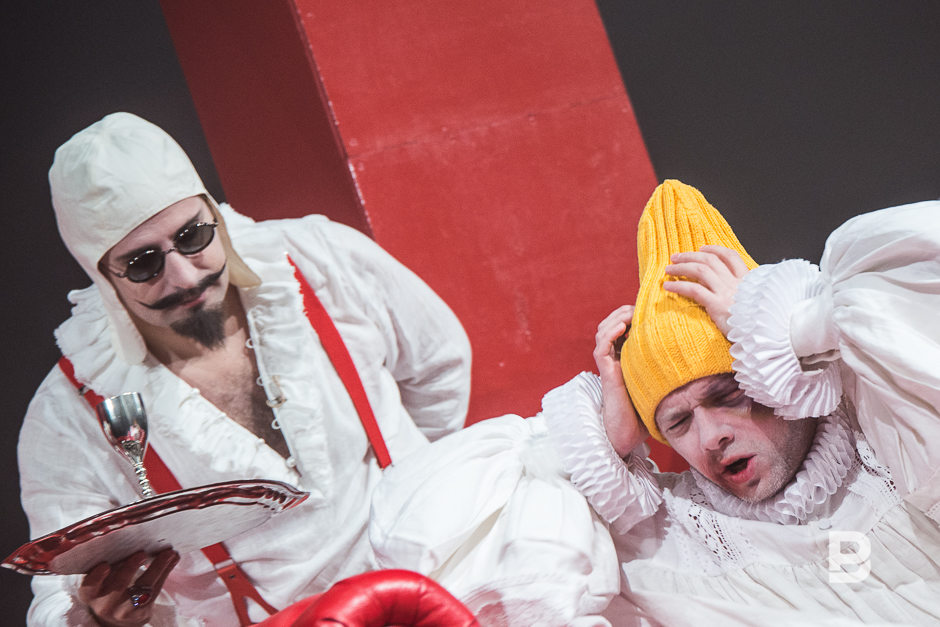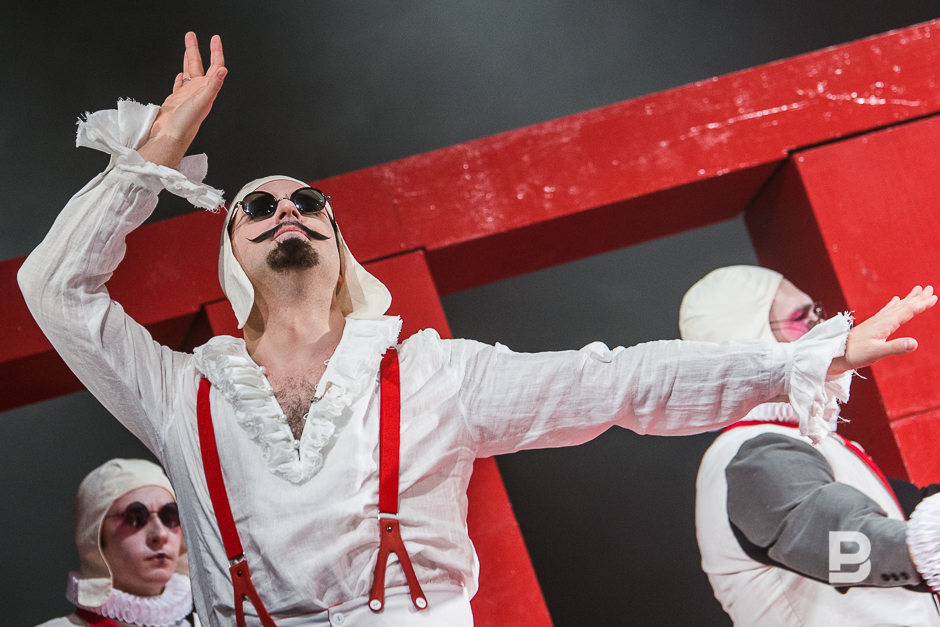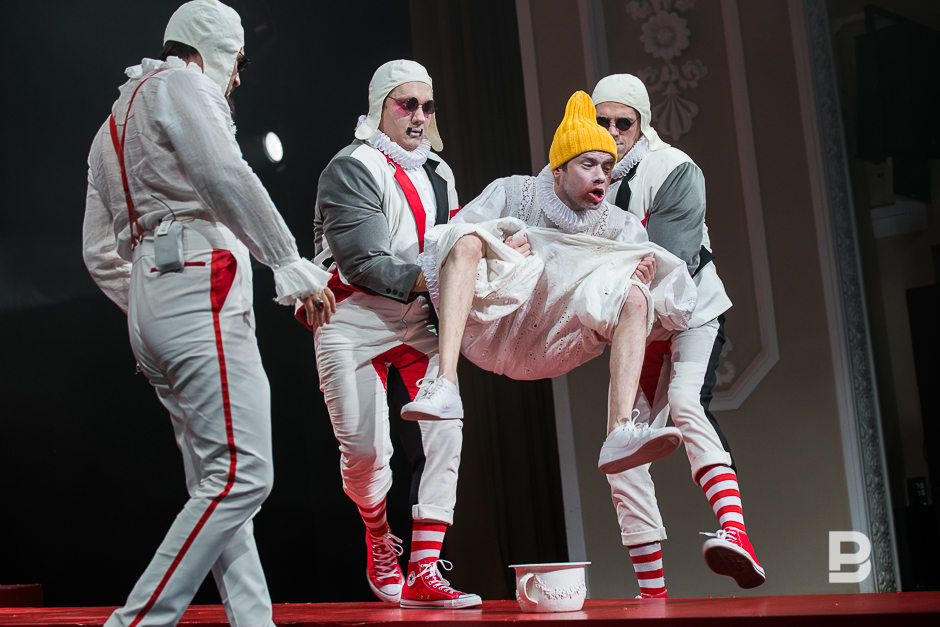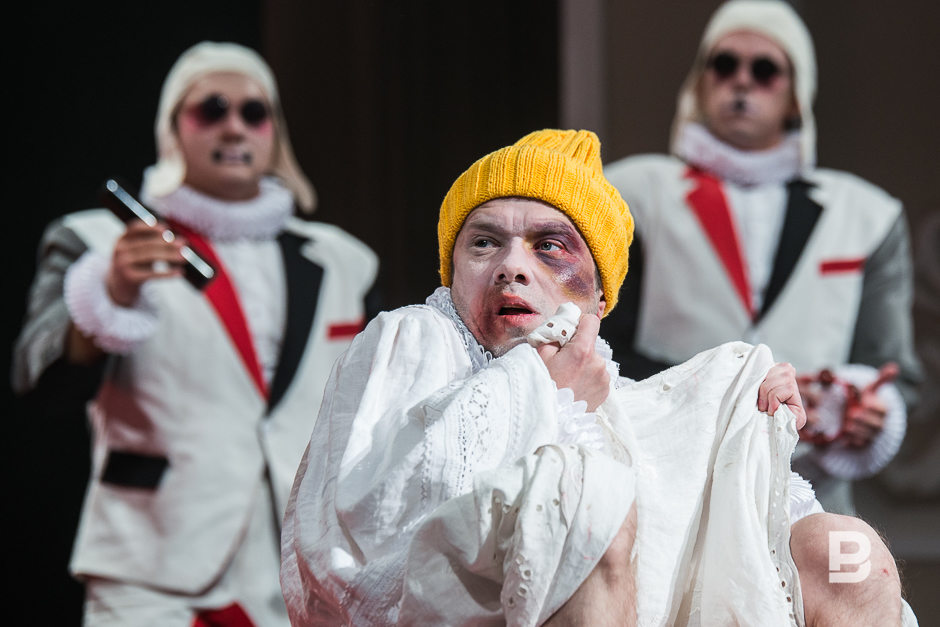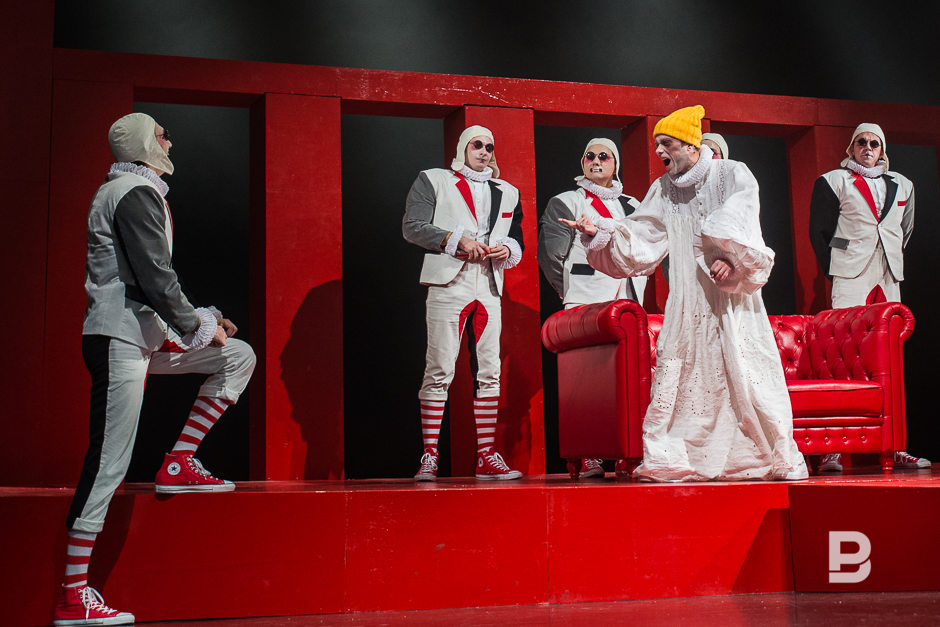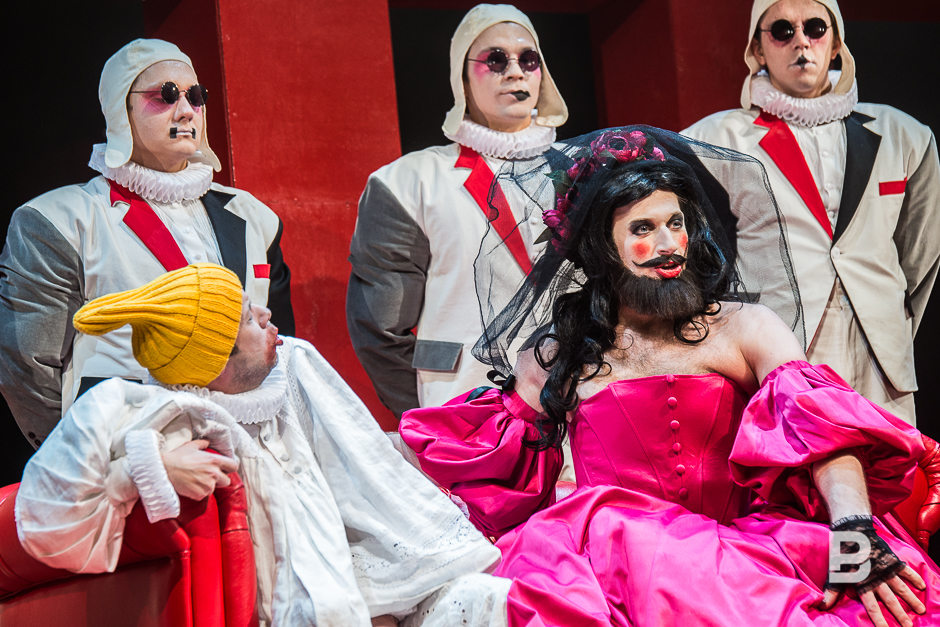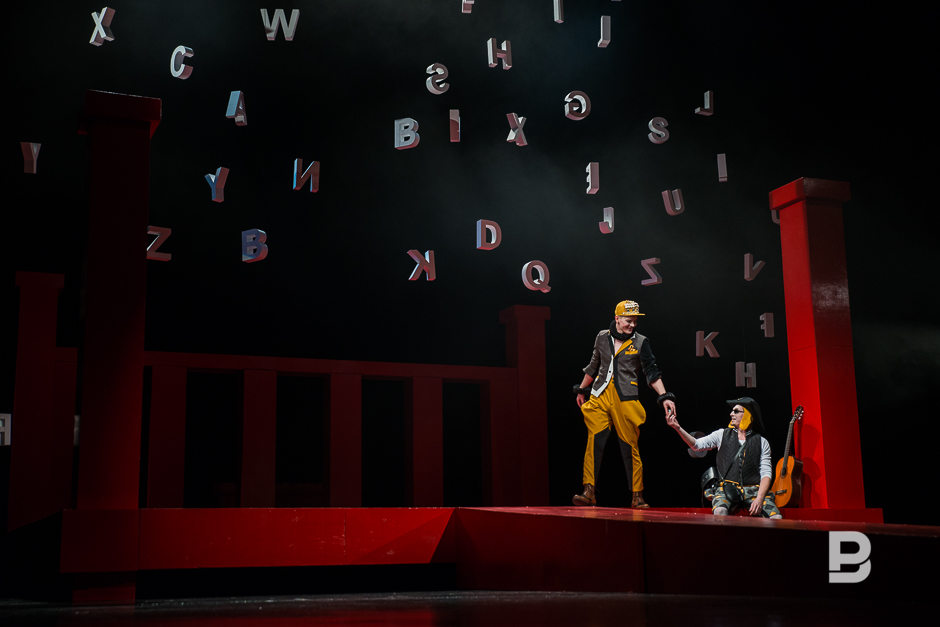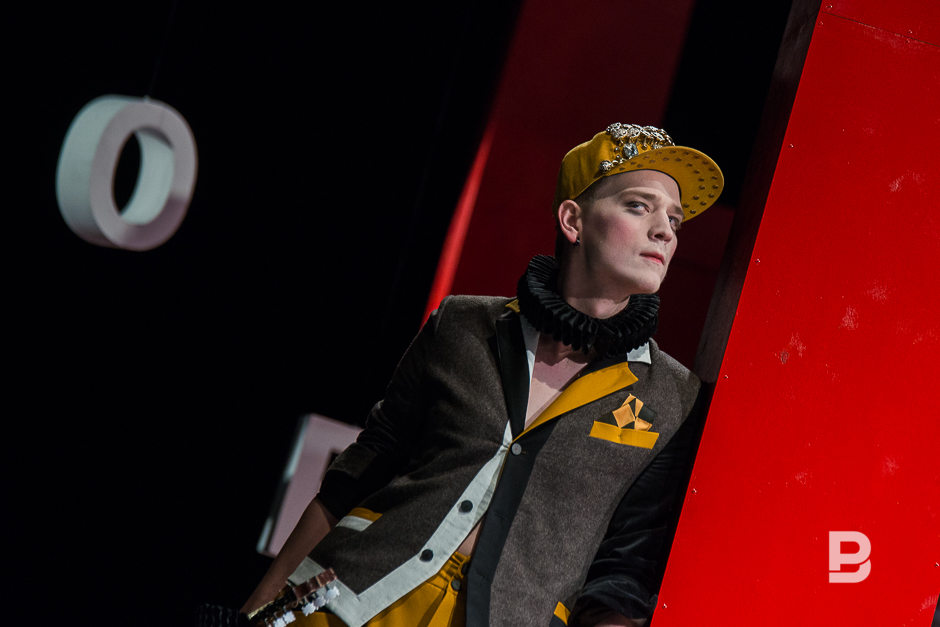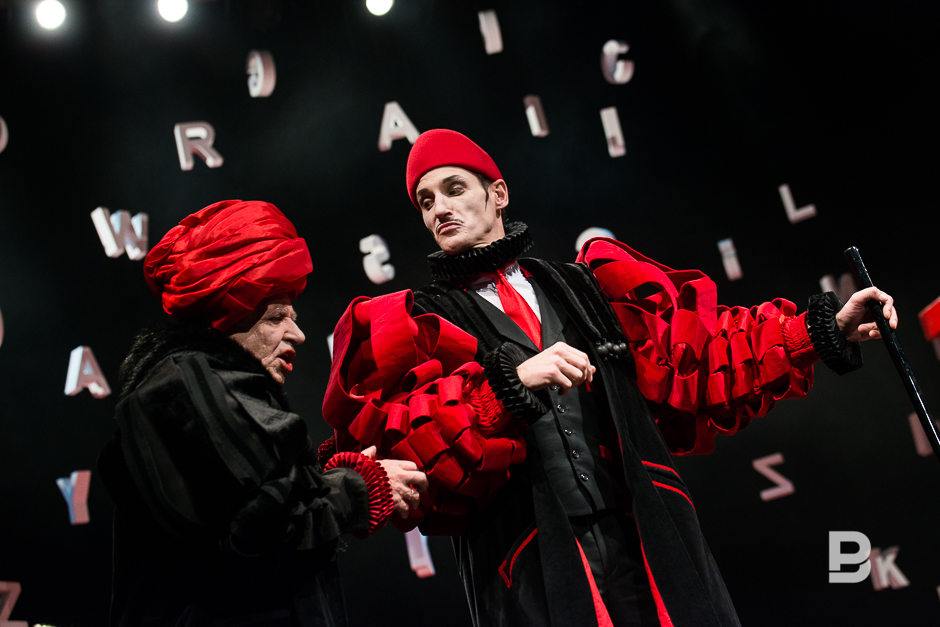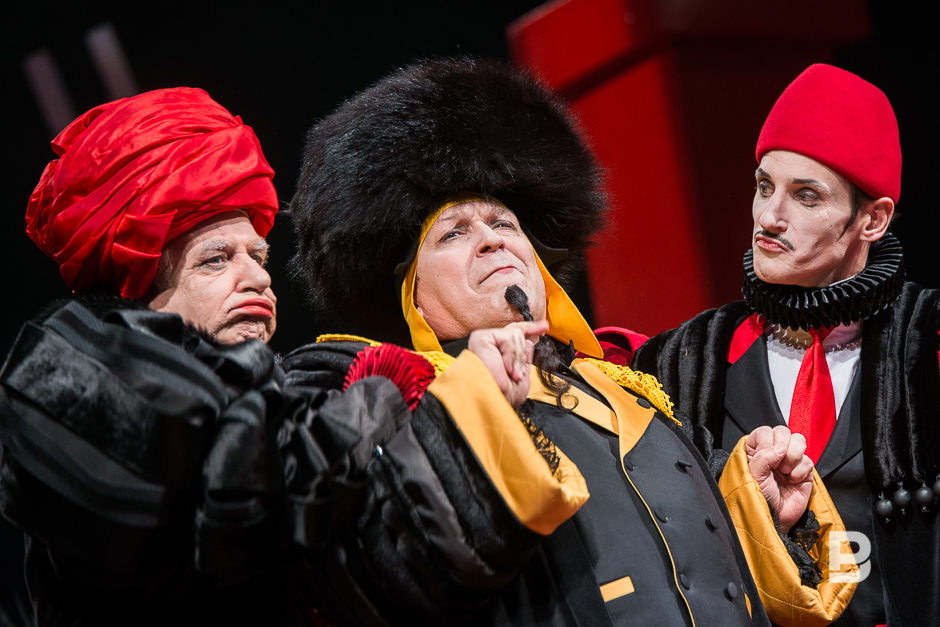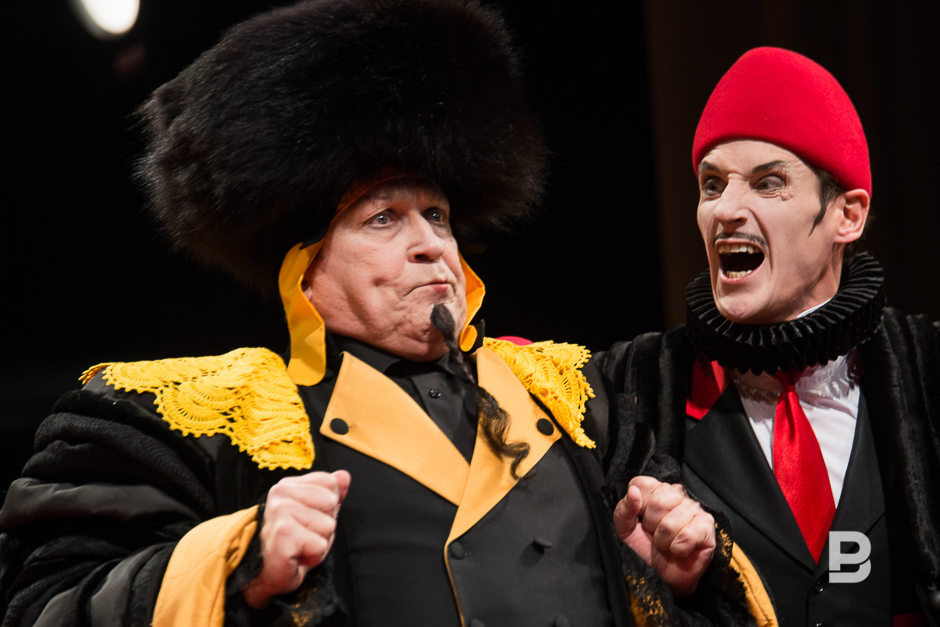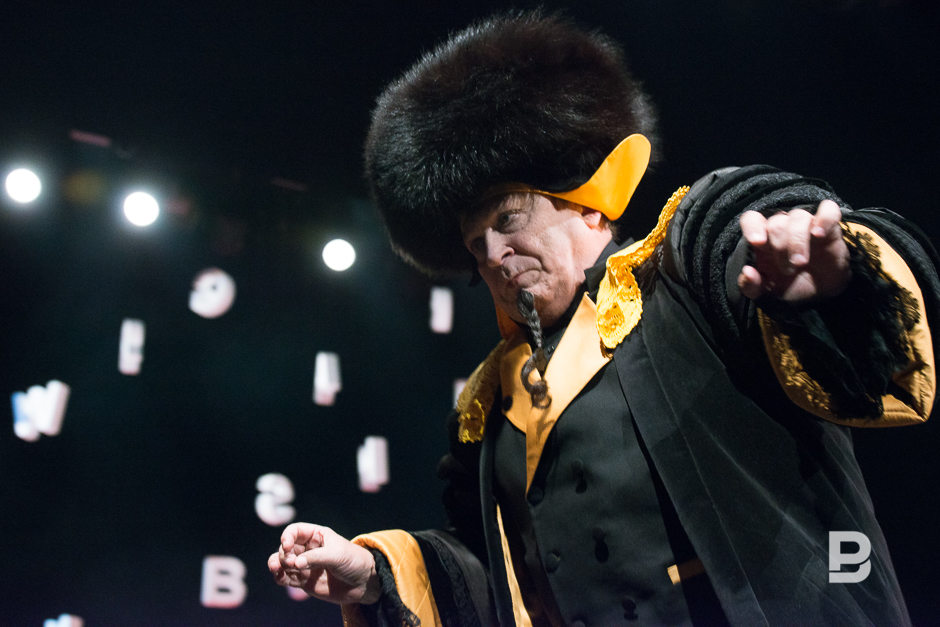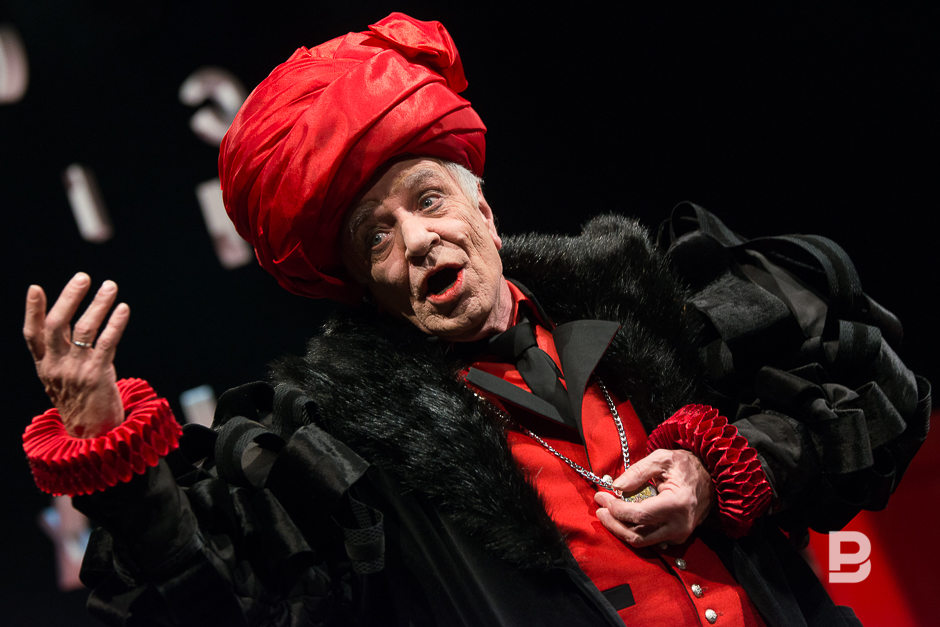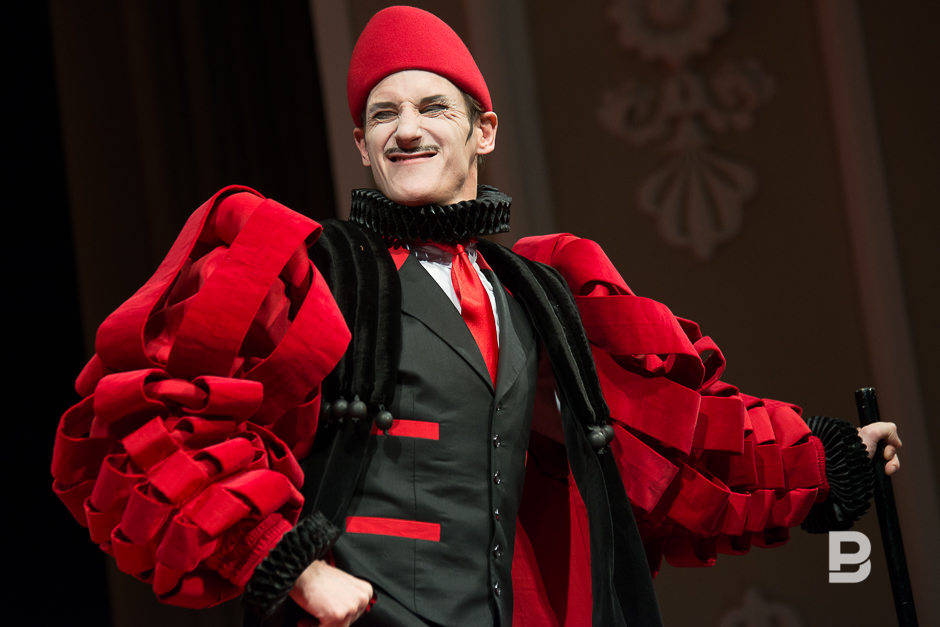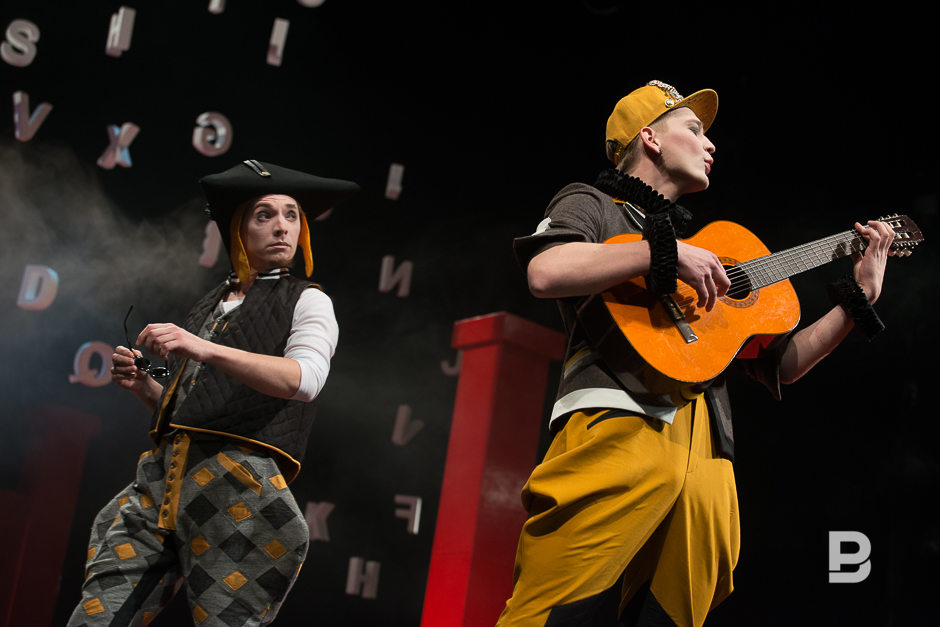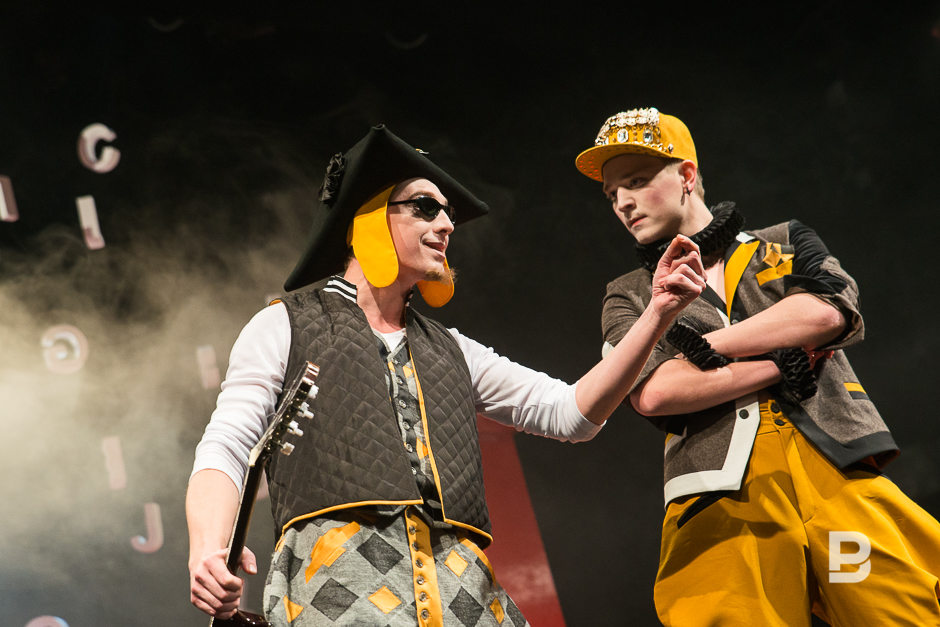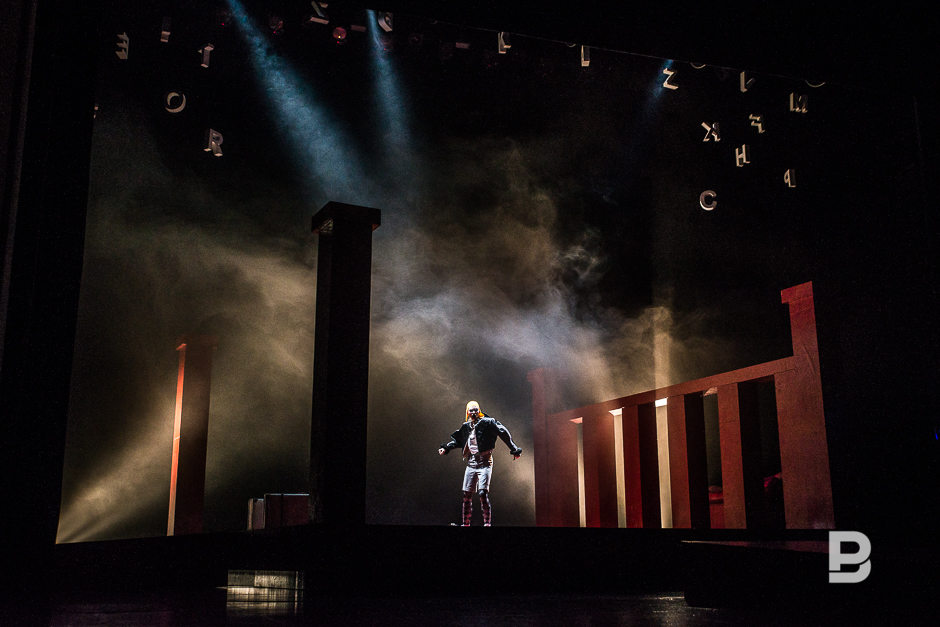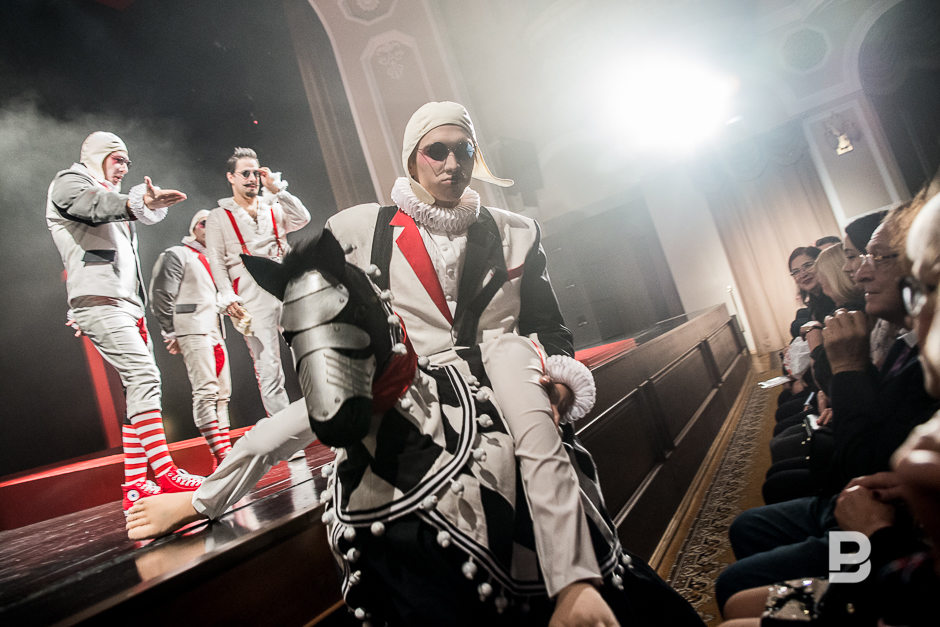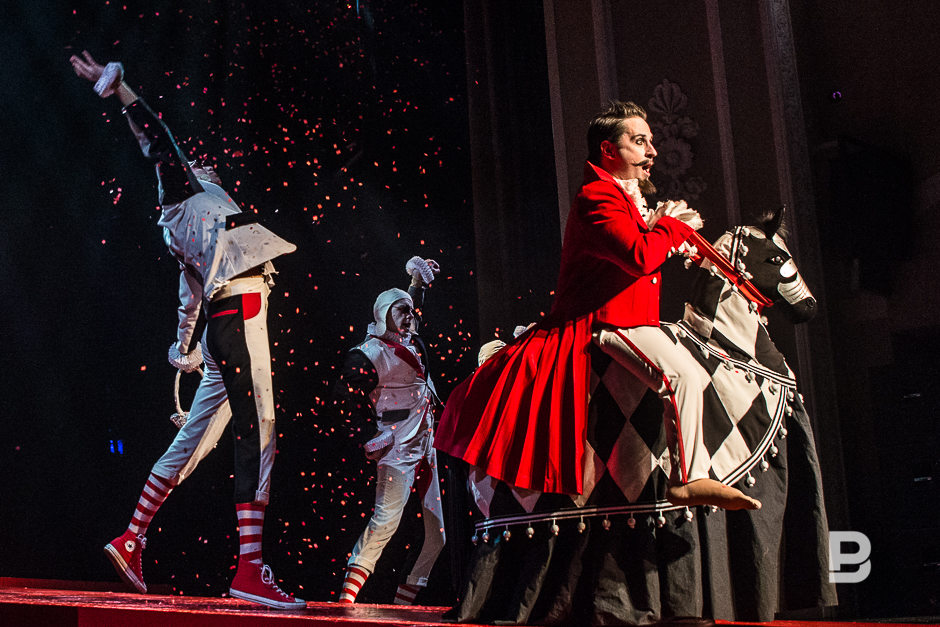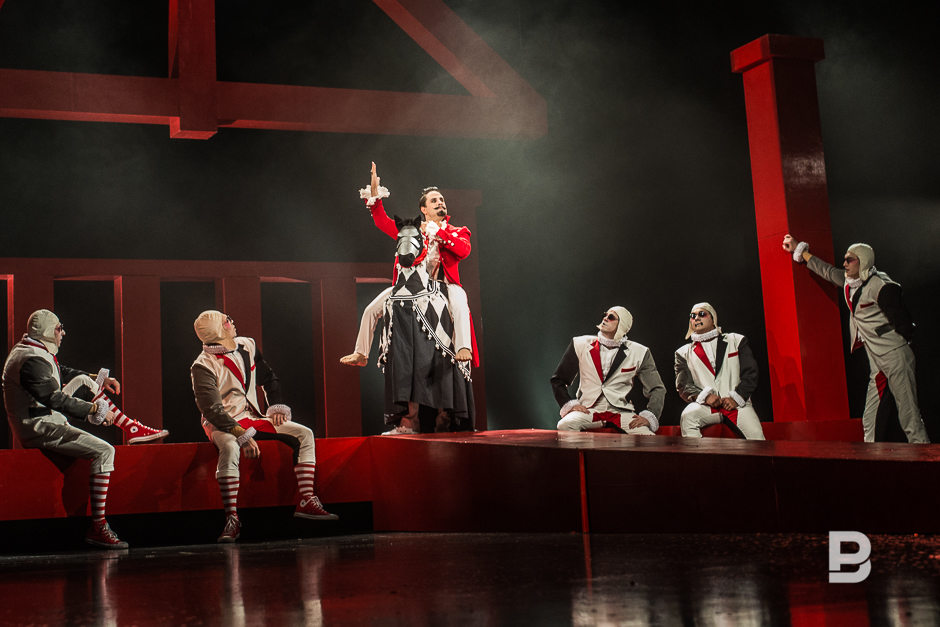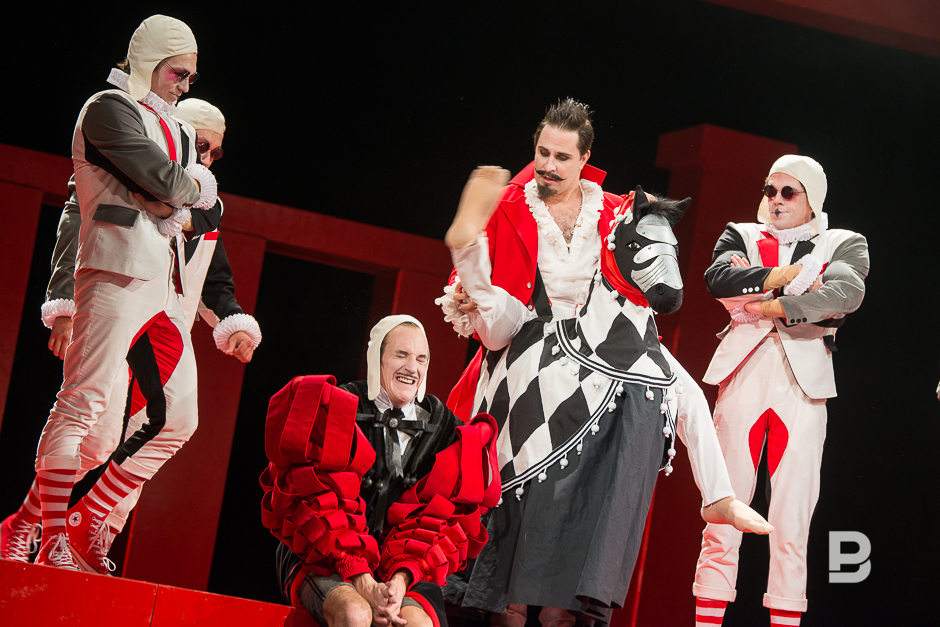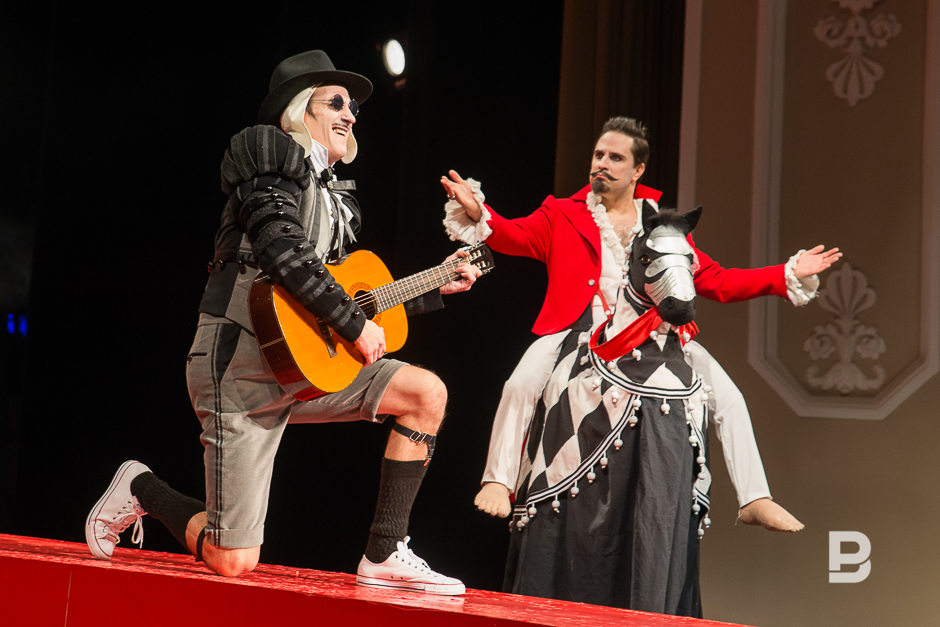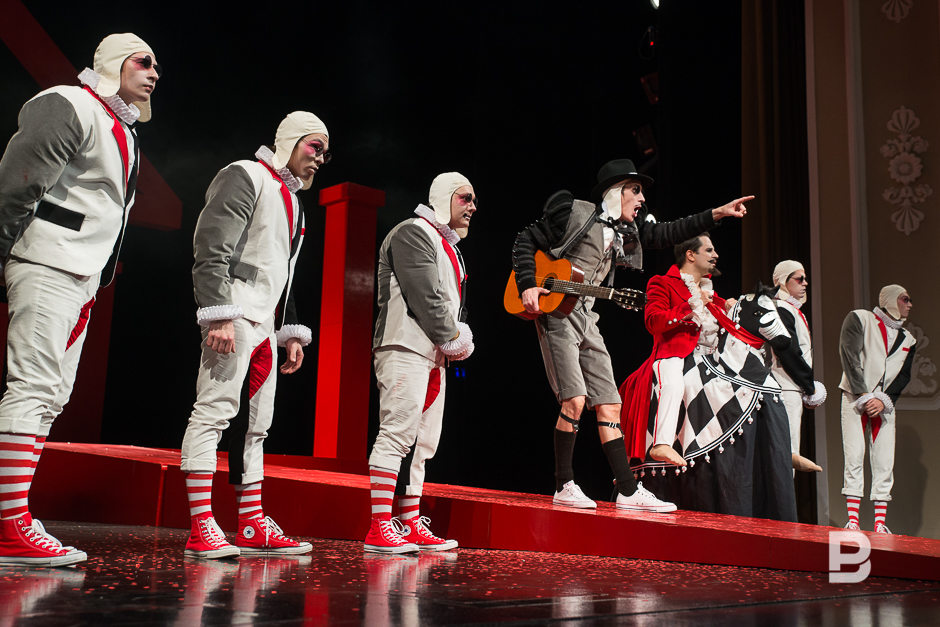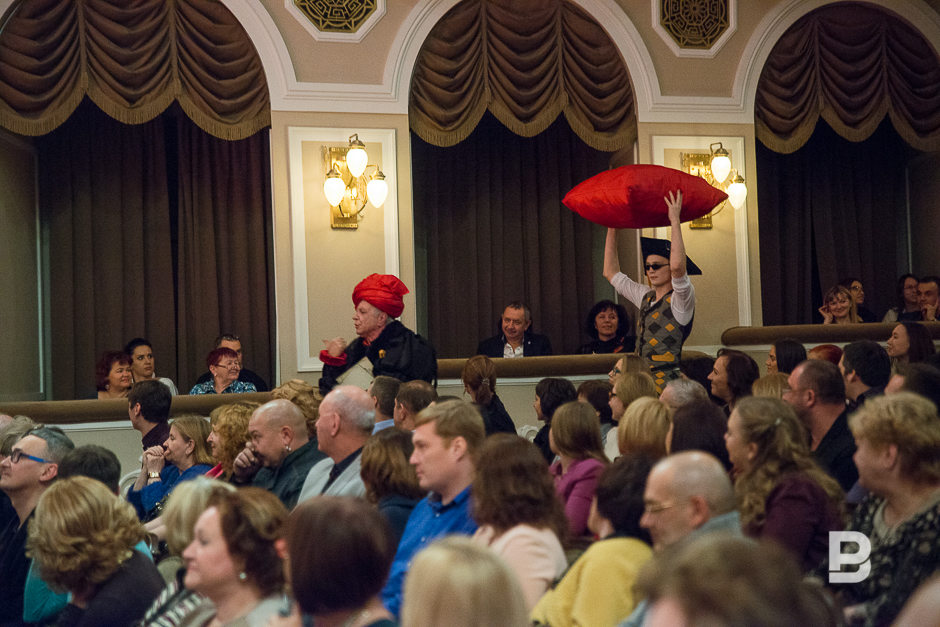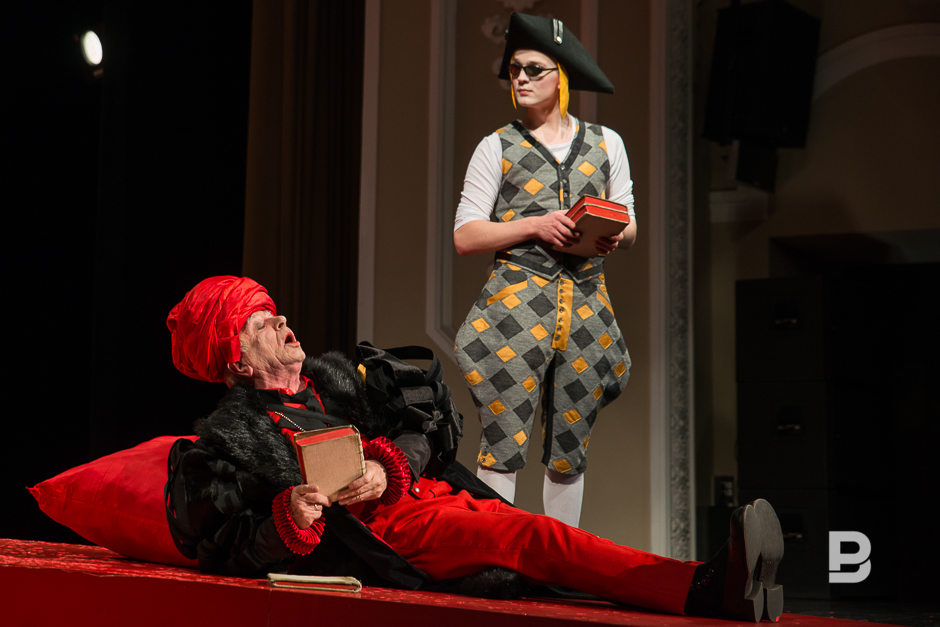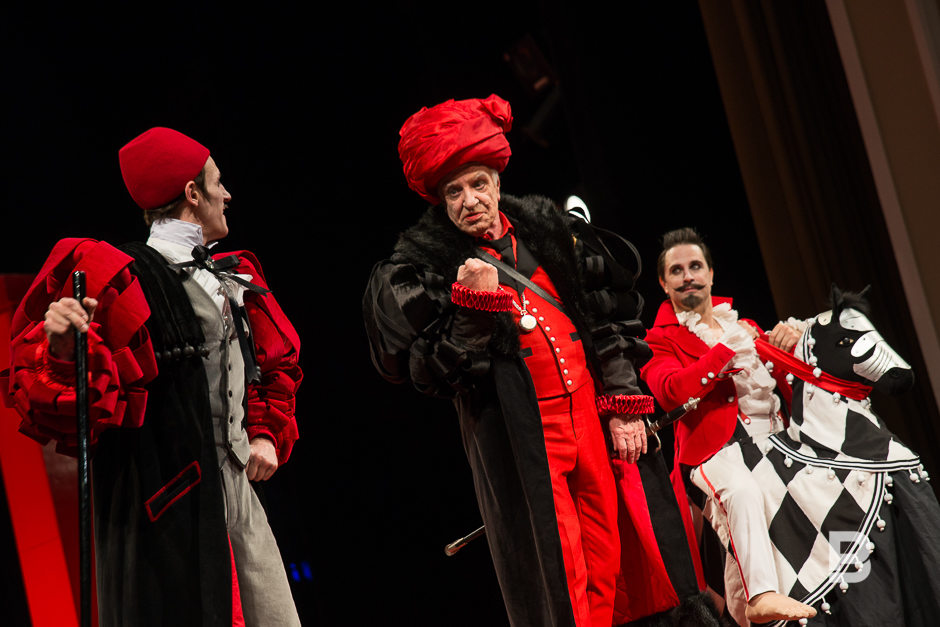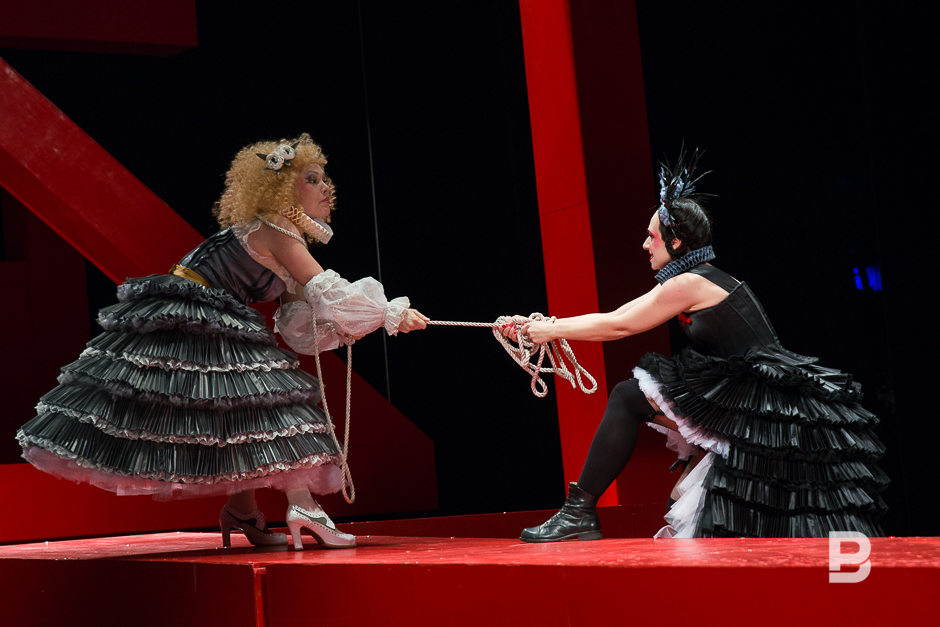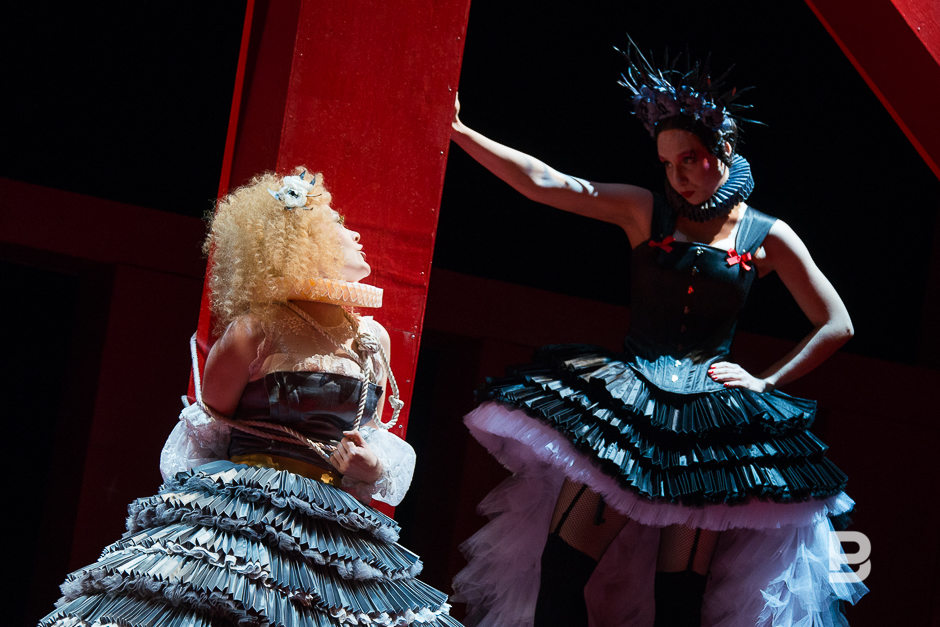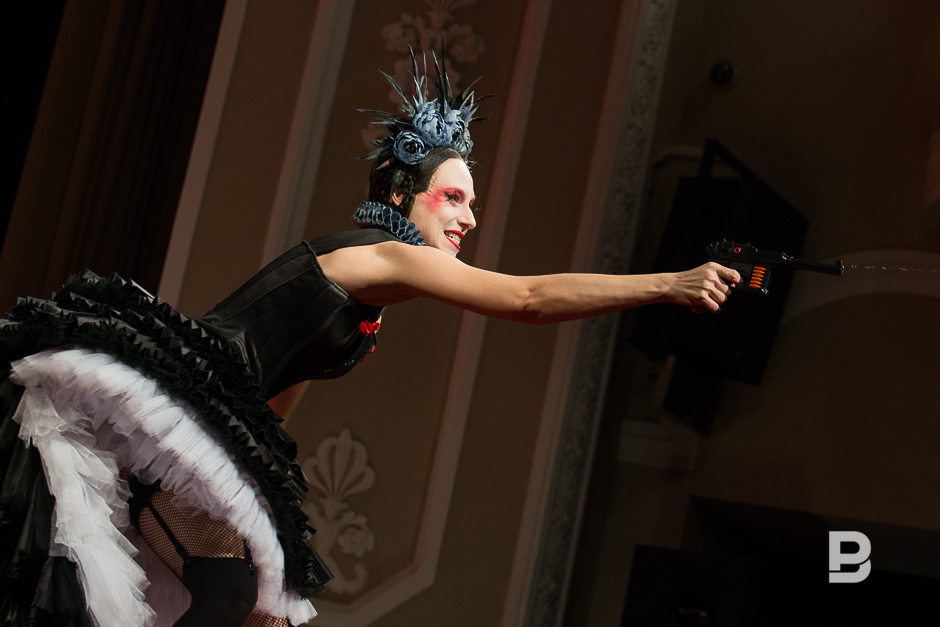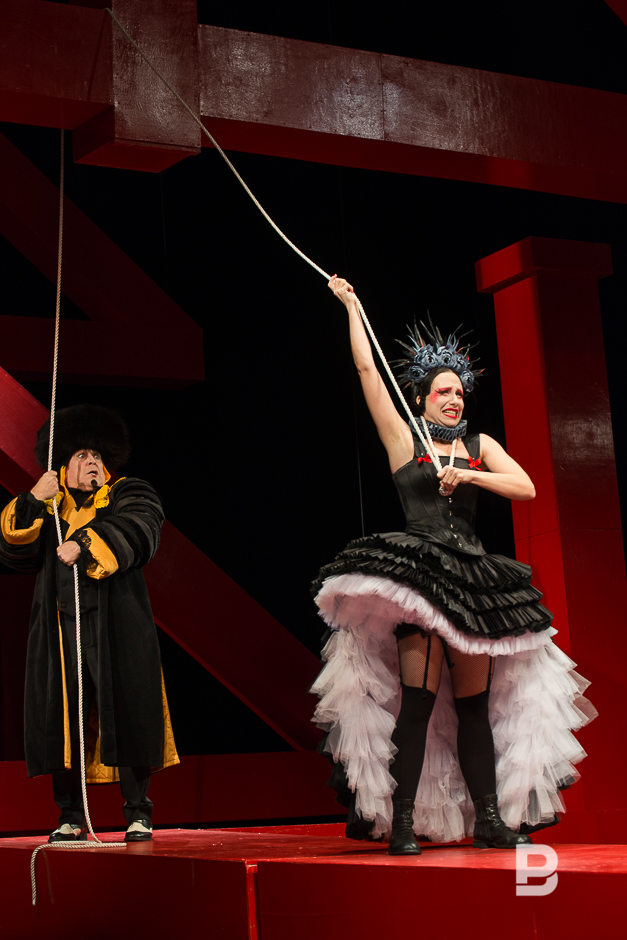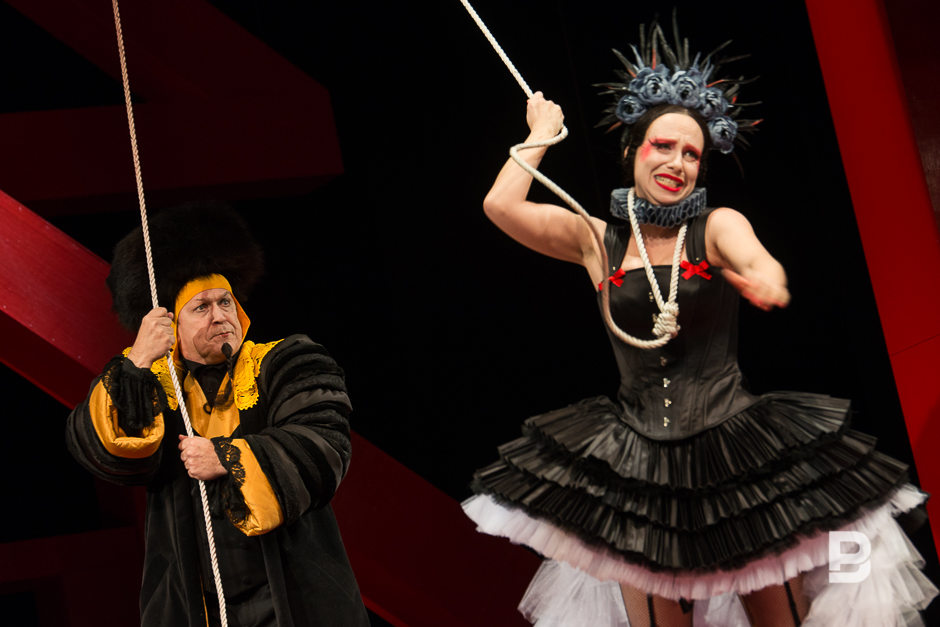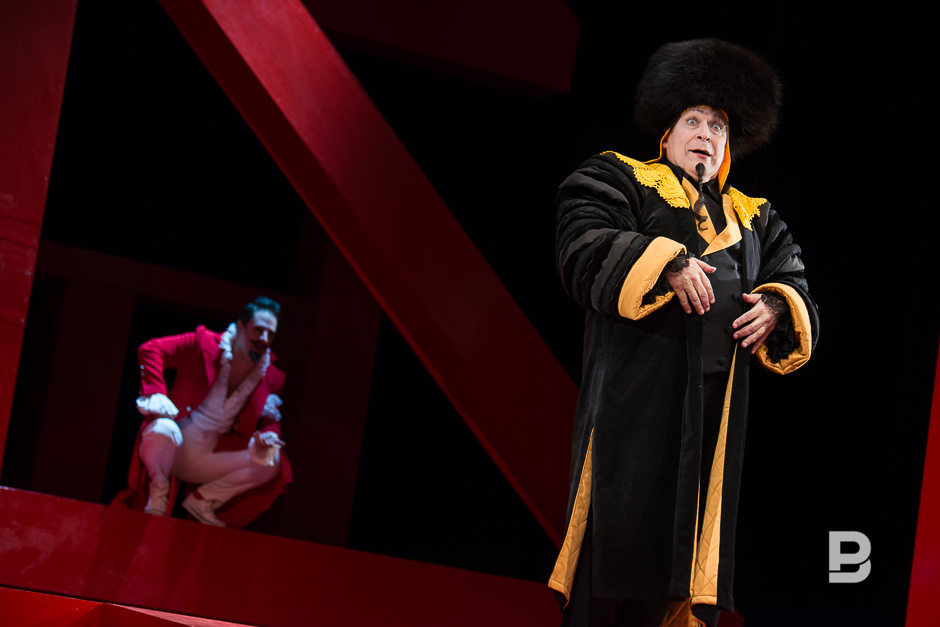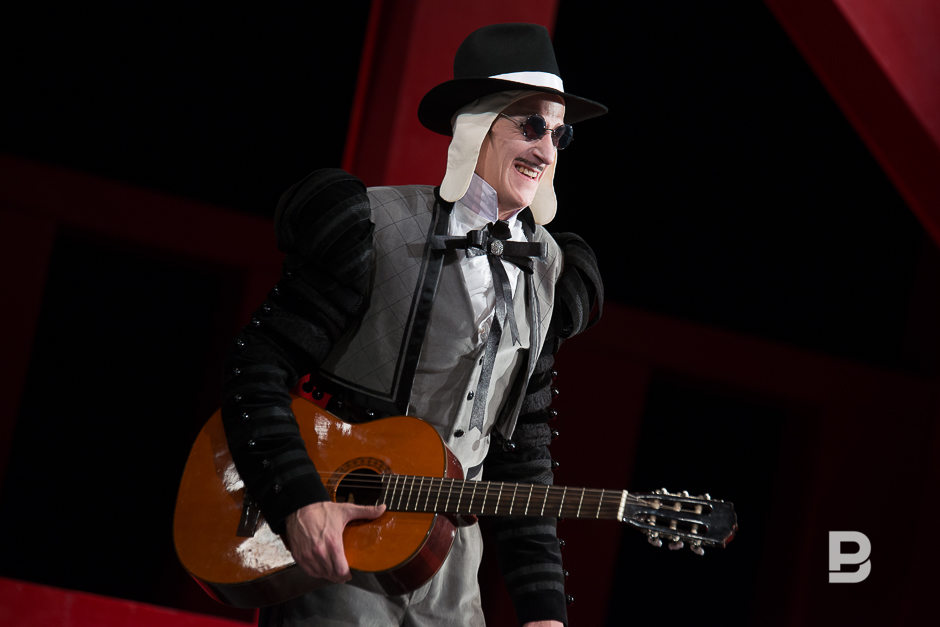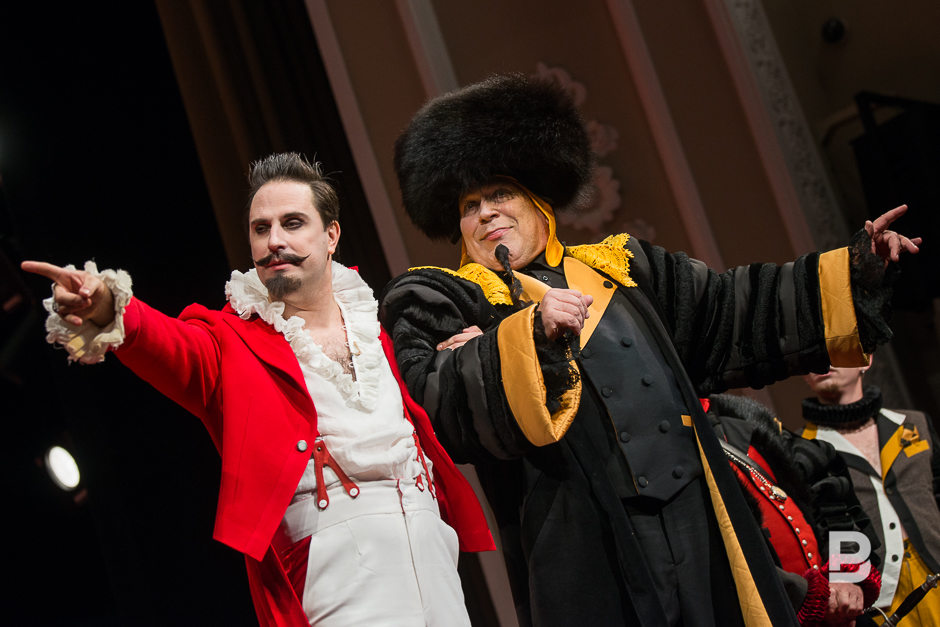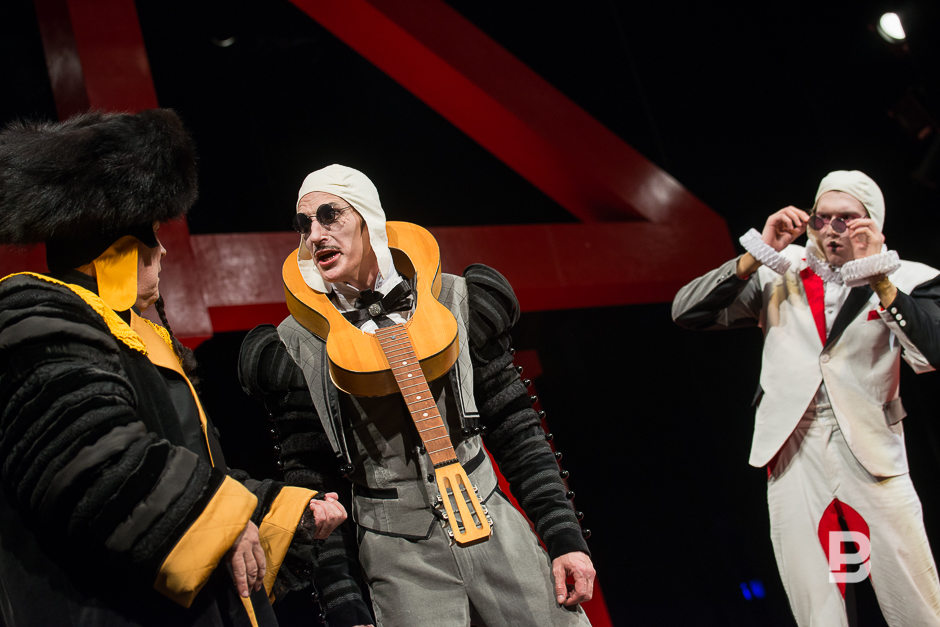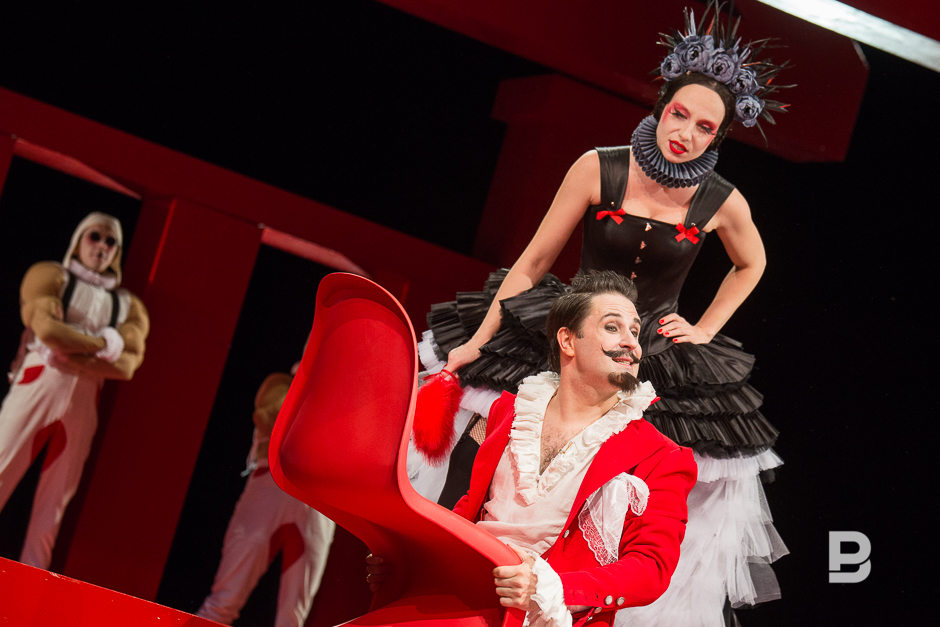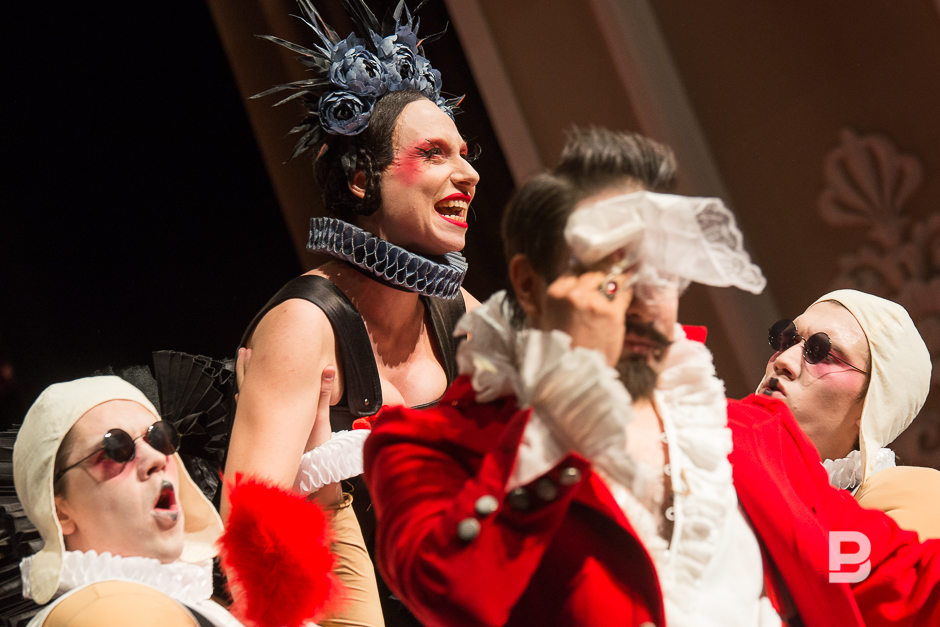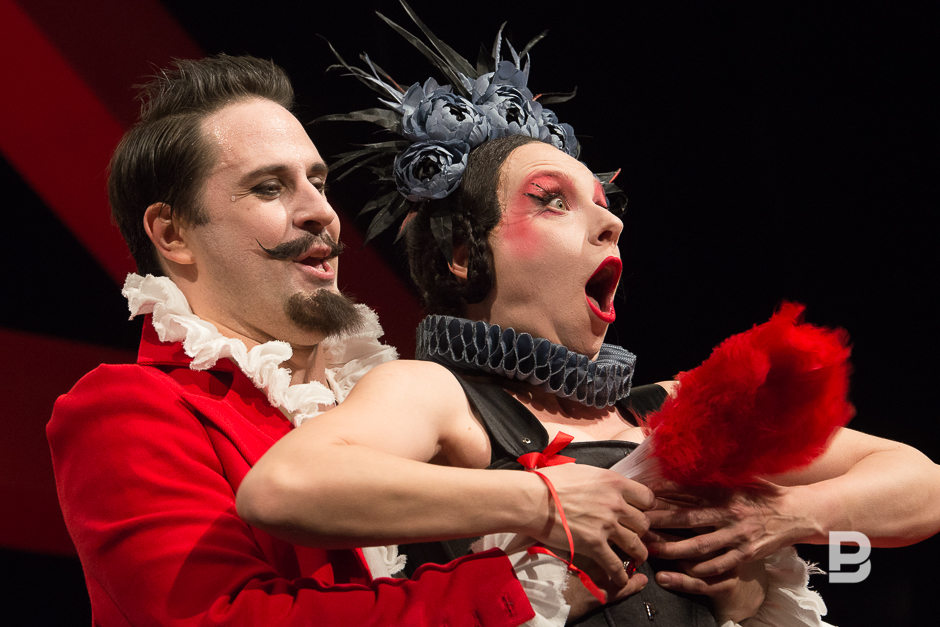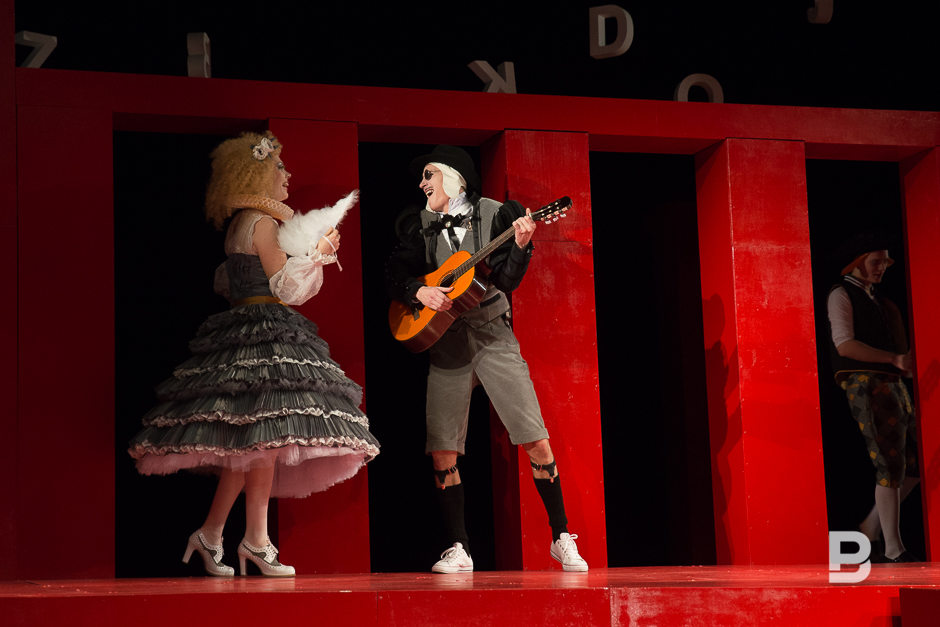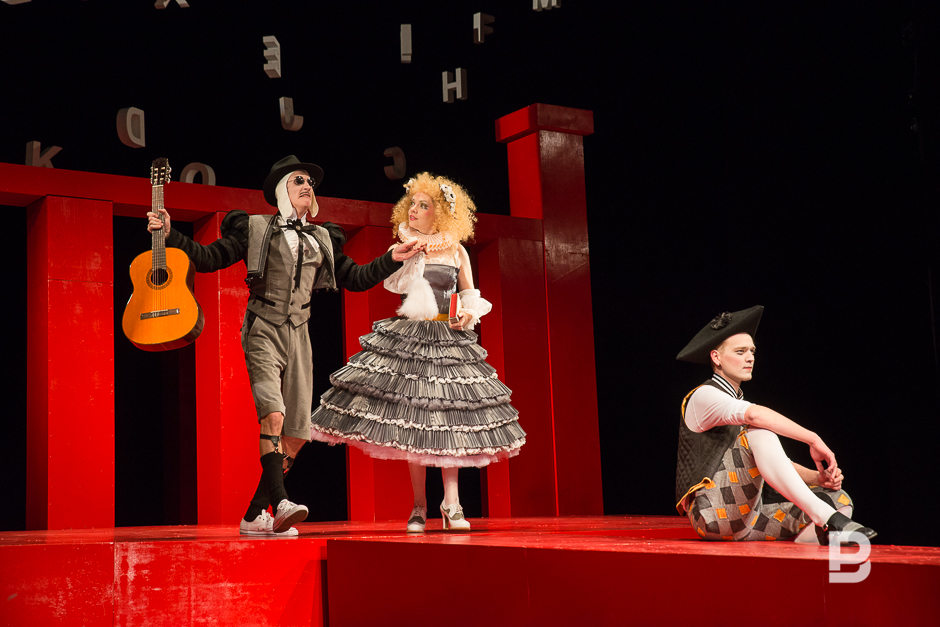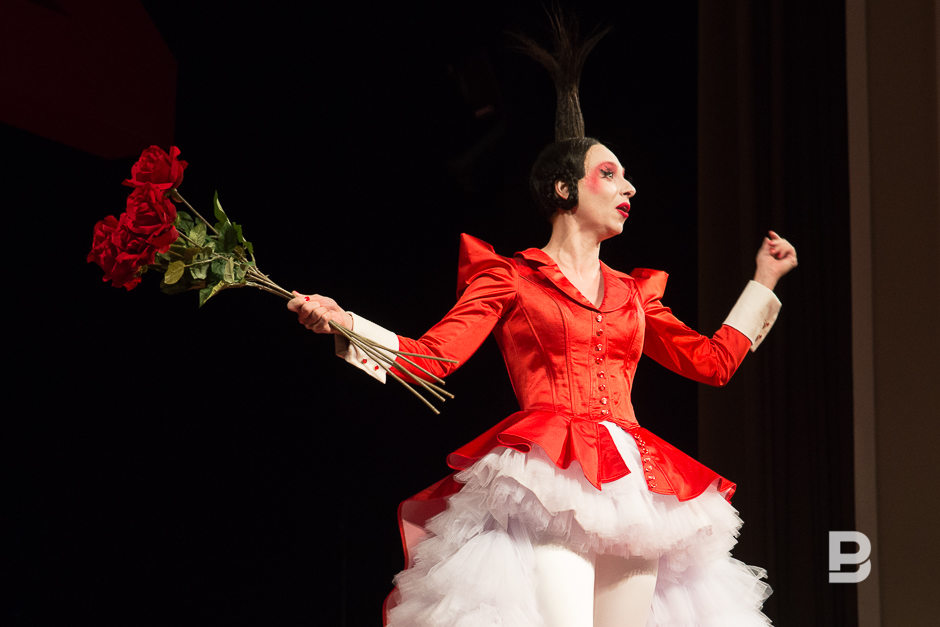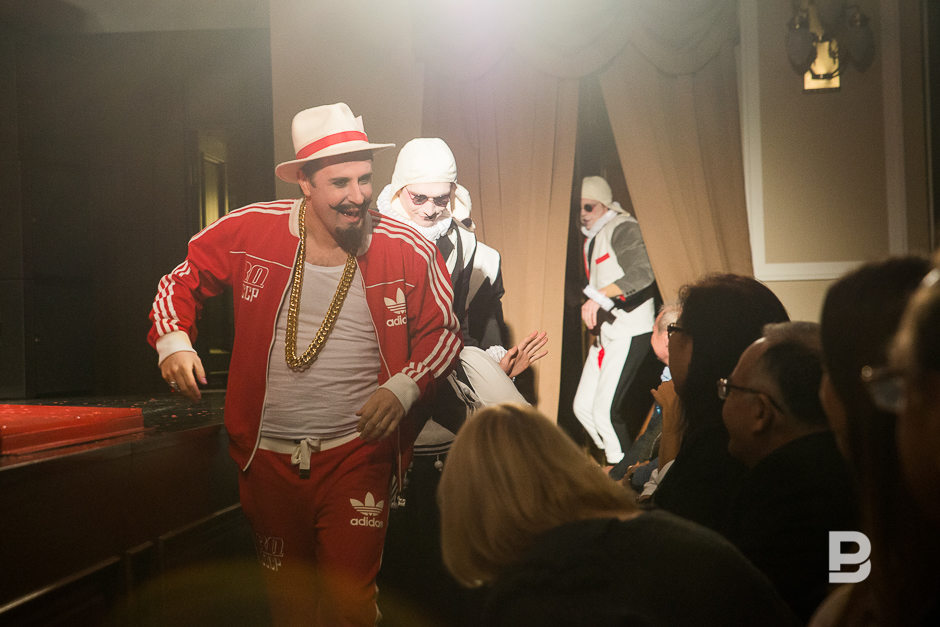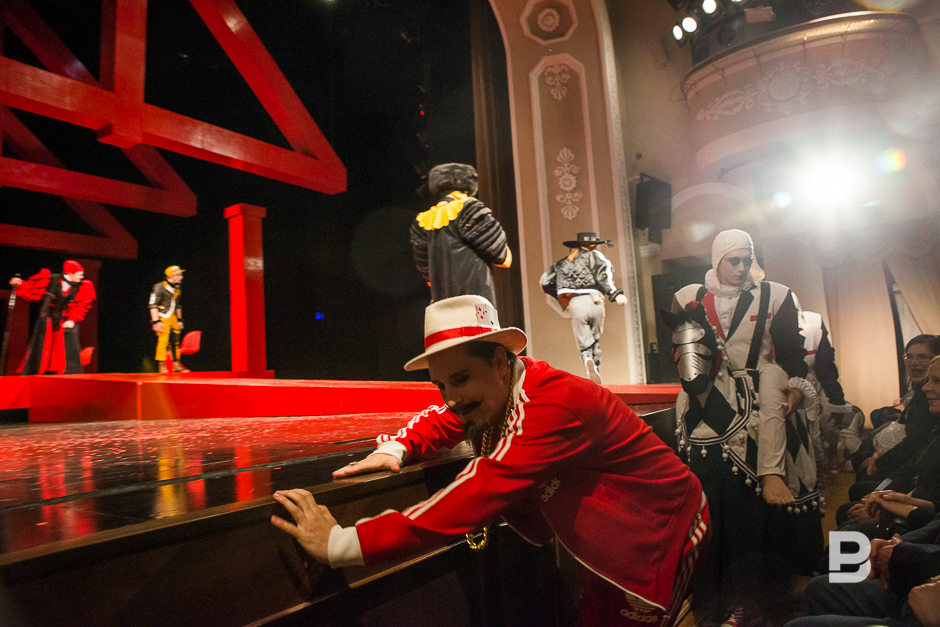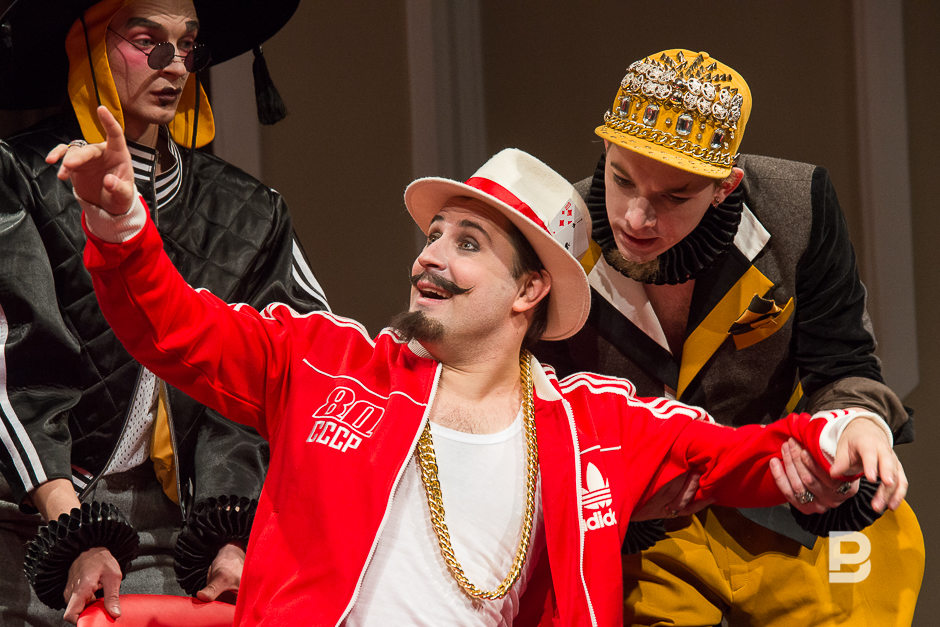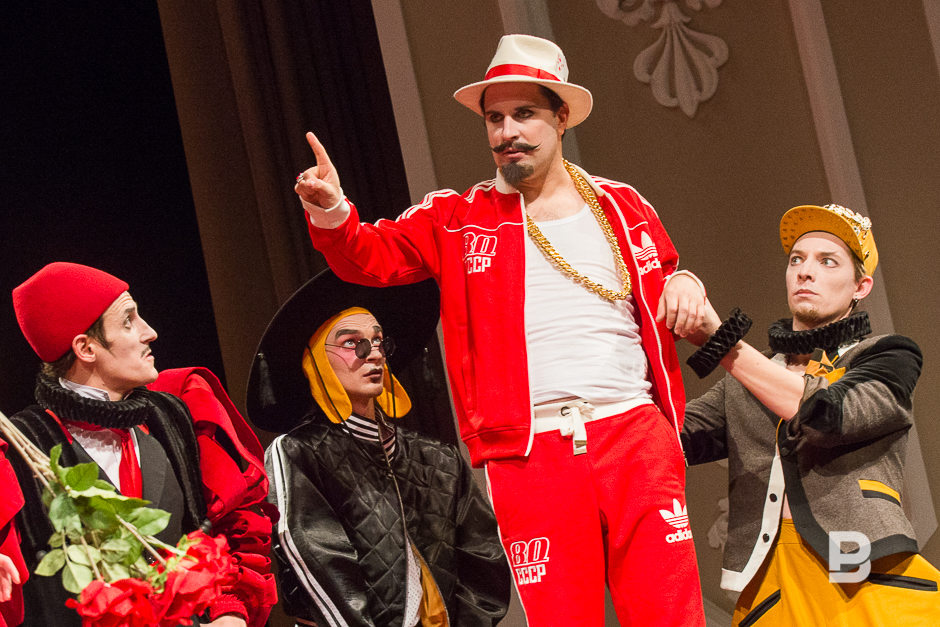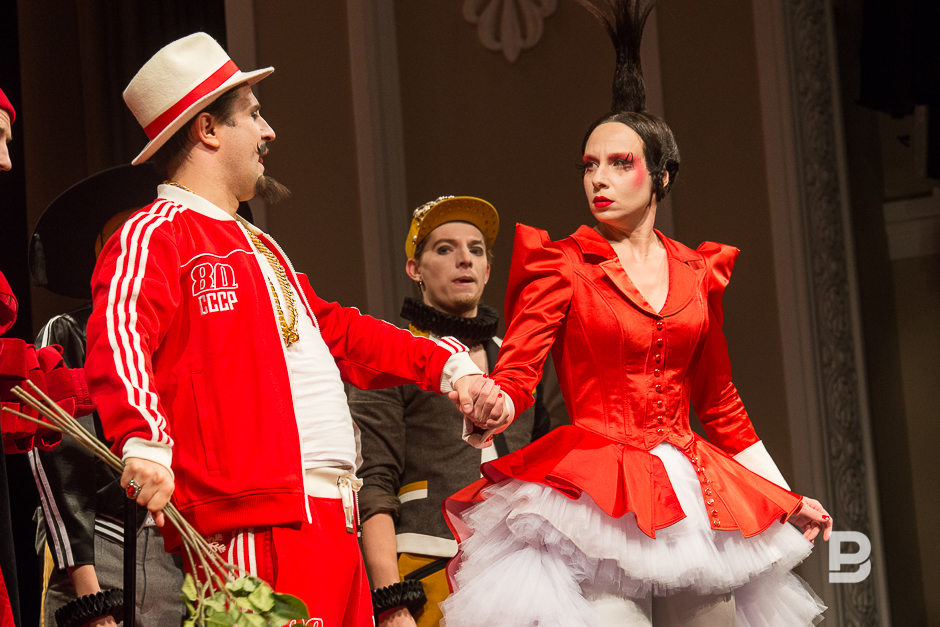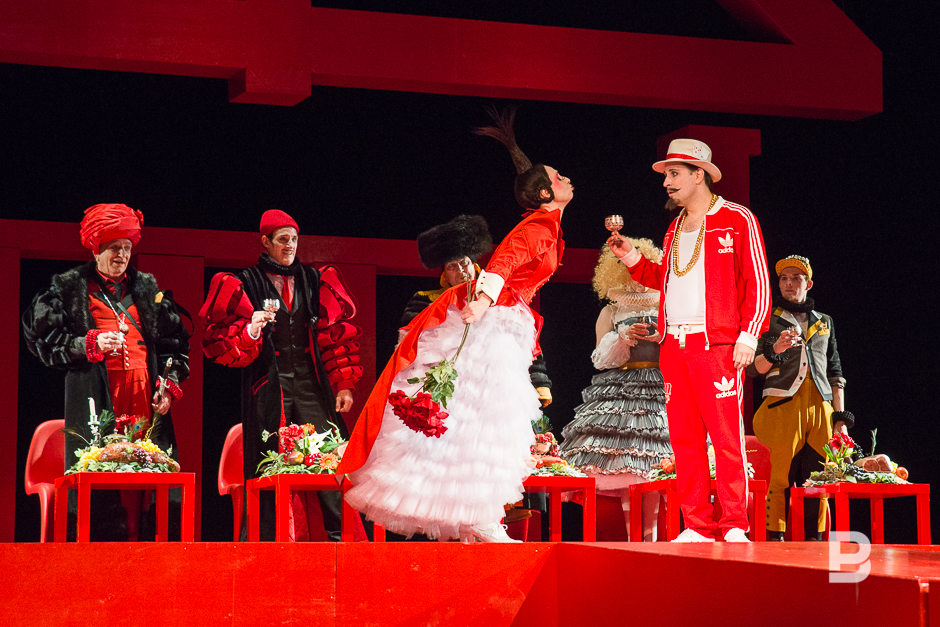Kachalov Theatre makes a stab at Shakespeare
Shakespeare’s comedy returns to the stage after almost a 30-year break
On 17 November, the Kachalov Bolshoi Drama Theatre had a premiere – William Shakespeare's The Taming of the Shrew. Saint Petersburg director Igor Konyaev staged Shakespeare's play in the style of the grotesque, probably with excessive frivolities. But they were allowed during the creation of the comedy.
After long break
The comedy The Taming of the Shrew was not staged during Shakespeare's lifetime, though the following history of stagings of this play is quite rich. Suffice it to remember Zeffirelli's film with Elizabeth Taylor as Katharina or The Taming of the Shrew at the Saint Petersburg Lensoviet Theatre with one of a kind and mysterious Alisa Freindlich. Citizens of Kazan saw this staging. The Lensoviet Theatre brought it to the capital of Tatarstan during its tour. The duo Friendlich and Dmitry Barkov (Petruccio) was temperamental, musical and kindling. In general, The Taming of the Shrew by Igor Vladimirov was one of the first and very successful Soviet musical plays, if not a musical.
A director from Saint Petersburg Igor Konyaev was invited to stage The Taming of the Shrew at the Kachalov Theatre. Kazan fans of theatre saw one of this plays – Moscow Chorus by Lyudmila Petrushevskaya performed at Lev Dodin's theatre, which was included in the tour programme of the Petersburg theatre.
It should be noted that it is quite a deep, ironic and stylish play. Now Igor Konyaev is the head director of the Saint Petersburg Theatre of Musical Comedy. It had an impact on his choices as a director.
Very appearance of Shakespeare on the Kazan stage can be only welcomed – last time the great dramaturg was staged at the Kachalov Theatre a long time ago. Staged 30 years ago, Twelfth Night, which was not very successful, was one of his last plays. So the play quickly disappeared from the programme.
Shakespeare is artful: it seems that his comedies are simple and earthy. But a director should find a limit on the other side of which Shakespeare's barnyard humour can be a platitude, and depth hidden behind the comicality of the situation won't be seen. Unfortunately, Konyaev did not manage to avoid all the pitfalls.
A feminist's story
The director chose Polina Melkova's translation to stage the play. He took the full version of the text of the comedy and added Shakespeare's sonnets translated by Marshak. In general, this breadth (a fragment of Sonnet 22) quite naturally suited the texture of the play. In fact, Konyaev's play has three plots: the story of Sly (as usual, stylish job by Marat Golubev), Katharina (Elena Ryashina) and Petruccio (Ilya Slavutsky) and Bianca's marriage (Elza Fardeyeva).
The stage design was quite laconic (by Olga Shaishmelashvili): the stage was tightly covered with a black cloth. There was a red rotating pavilion in the middle. A minimum of decorations but very expressive costumes were worthy of great attention. The artist's fantasy goes so far that at times a good taste betrays like, for example, Katharina's first costume. But it is an isolated case.
Spectators get the director's key message as soon as they enter the hall. The curtain is up. We see an inscription – Shakespeare's quote: 'All the world's a stage'. Then we get in a stormy world of theatre where one not always manages to understand whether it is a story about Katharina's timing or if it is just a play on this topic performed by strolling actors.
Ilya Slavutsky feels comfortable in this joyful comic hustle as anybody else. He is natural, gorgeous with an inner tuning fork that doesn't allow him to commit a sin against a good taste. The actor's make-up resembles Don Quijote's portraits for some reason. Artists like to feature him in illustrations by Cervantes' novel this way. But he was not a sad knight but a pragmatic sir who earned on his own marriage.
His verbal duels with Katharina is a battle of two even strong personalities. In general, Katharina performed by Ryashina can be called feminist. But a feminist whom not even Petruccio times. She is timed by love and subconscious desire of any ordinary woman to subdue a strong man. It is a pity that the actress doesn't perform her final monologue with such an expressive texts. According to the director's idea, she sings it into the microphone moving from the stage to the hall. And it seems that a part of the text disappears because of it.
The play also had many inventions of the director. Some of them are wise. Some of them are on the verge of failure. Of course, the Renaissance is a period when Europe became free from the bigotry of the Middle Ages, and a strong language, frivolous situation were respected. But a limit is a good thing. And Konyaev sometimes has problems when he tries to make people laugh by all means.
Thanks to the director's fantasy and that inner freedom reigning on the stage, The Taming of the Shrew has an entire group of beautiful dramatic performances from big roles like Mikhail Galitsky (Baptista), Ilya Petrov (Hortensio) to modest ones – Aleksander Malinin (Madam), Yury Petrov (Suitor), Ilya Skryabin (Priest), Aleksey Zakharov (Tranio).
The form of the grotesque chosen by the director can be explained in general. The play doesn't have eclectics. Everything develops according to the rules of the director who created them for himself and actors. But at times Shakespeare is staged in a 'light' version. But who can strictly say that it is not allowed?
